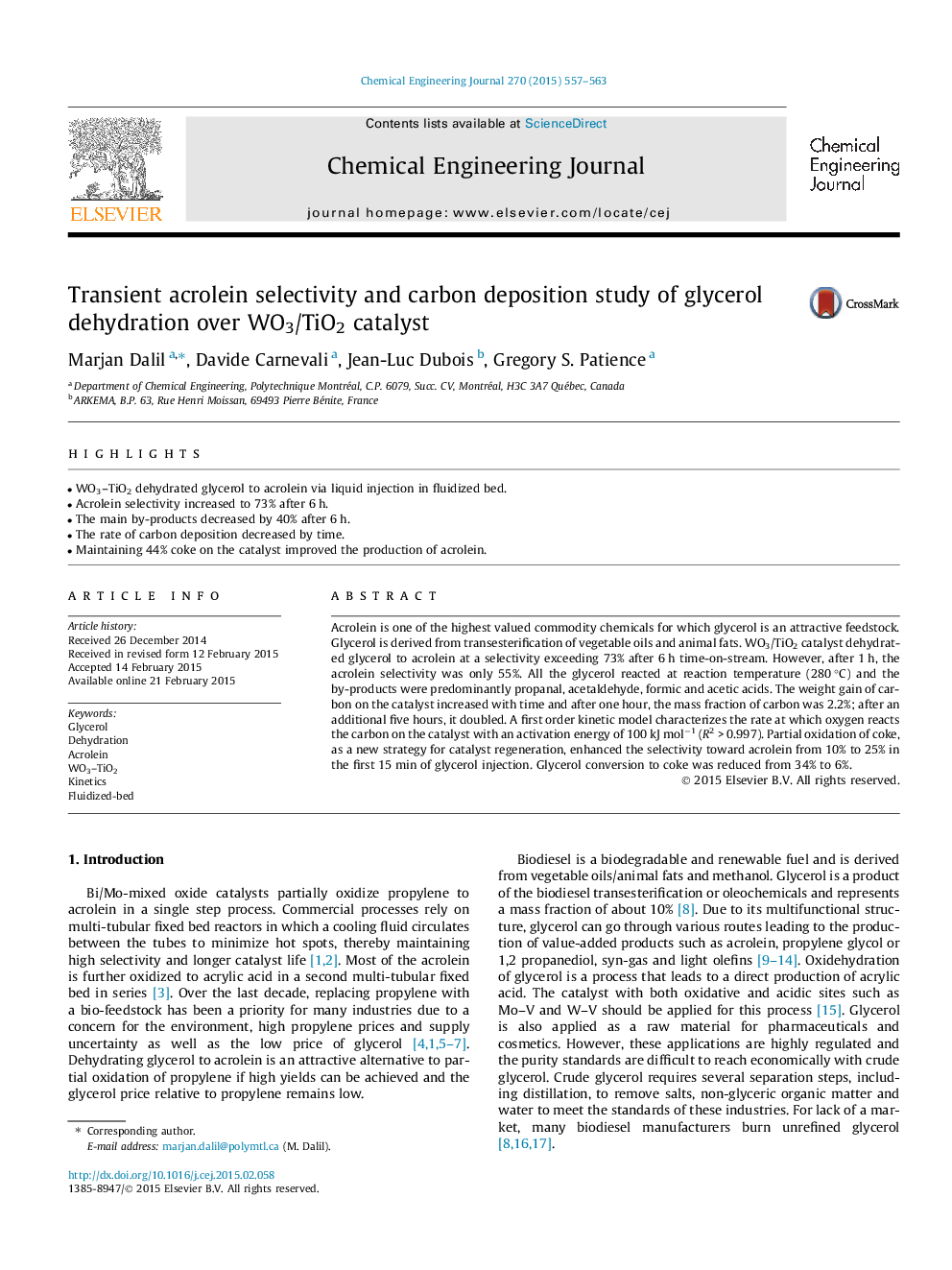| کد مقاله | کد نشریه | سال انتشار | مقاله انگلیسی | نسخه تمام متن |
|---|---|---|---|---|
| 146492 | 456371 | 2015 | 7 صفحه PDF | دانلود رایگان |

• WO3–TiO2 dehydrated glycerol to acrolein via liquid injection in fluidized bed.
• Acrolein selectivity increased to 73% after 6 h.
• The main by-products decreased by 40% after 6 h.
• The rate of carbon deposition decreased by time.
• Maintaining 44% coke on the catalyst improved the production of acrolein.
Acrolein is one of the highest valued commodity chemicals for which glycerol is an attractive feedstock. Glycerol is derived from transesterification of vegetable oils and animal fats. WO3/TiO2 catalyst dehydrated glycerol to acrolein at a selectivity exceeding 73% after 6 h time-on-stream. However, after 1 h, the acrolein selectivity was only 55%. All the glycerol reacted at reaction temperature (280 °C) and the by-products were predominantly propanal, acetaldehyde, formic and acetic acids. The weight gain of carbon on the catalyst increased with time and after one hour, the mass fraction of carbon was 2.2%; after an additional five hours, it doubled. A first order kinetic model characterizes the rate at which oxygen reacts the carbon on the catalyst with an activation energy of 100 kJ mol−1 (R2 > 0.997). Partial oxidation of coke, as a new strategy for catalyst regeneration, enhanced the selectivity toward acrolein from 10% to 25% in the first 15 min of glycerol injection. Glycerol conversion to coke was reduced from 34% to 6%.
Journal: Chemical Engineering Journal - Volume 270, 15 June 2015, Pages 557–563